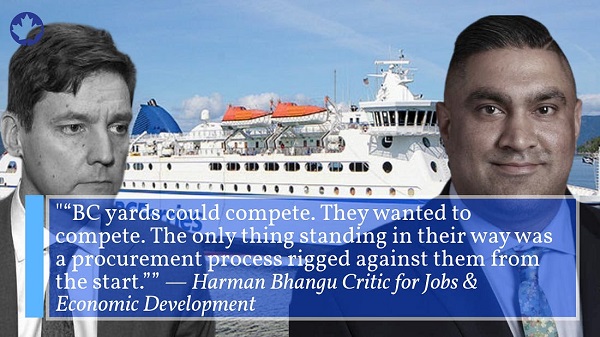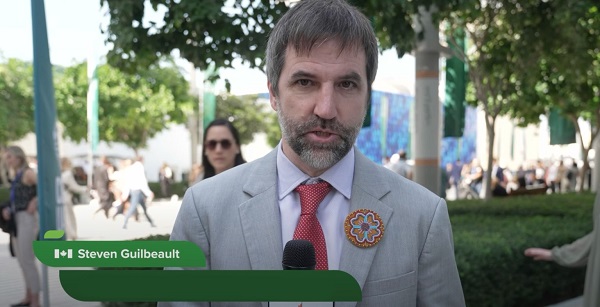Business
Losses Could Reach Nearly One Billion: When Genius Failed…..Again

Illustration by Daniel Medina
By Eric Salzman
The smartest guys in the room fall for the same scam twice in less than 5 years
THE SCHEME: Fraud and Money Laundering
THE COMPANY: Stenn Technologies
Racket News is a reader-supported publication.
To receive new posts and support my work, consider becoming a free or paid subscriber.
THE NEWS: For the second time in five years, a scam involving sexing up a boring, centuries old financing business blew up in the faces of some of the world’s largest banks
You know the old saying. Fool me once, shame on you. Fool me twice…
In December, “fintech” supply chain financier Stenn Technologies and its subsidiaries Stenn Assets UK Ltd and Stenn International Ltd, collapsed, spanking investors and lenders such as Citigroup, Nexis, BNP Paribas, HSBC and private equity firm Centerbridge. Just a month prior to the blow-up, Stenn was viewed as a fintech unicorn with a robust $1 billion book of business, poised for strong growth.
As we’ve seen time and again, a unicorn can quickly die when a company’s business model screams fraud to anyone bothering to look.
Stenn Technologies claimed to use artificial intelligence and state of the art technology to analyze credit and money laundering risk in order to turn a low margin, supply chain financing business into an awesome, high return, low risk securitized product.
Here’s a quick explanation of supply chain financing:
1. A company delivers its product to a buyer and the buyer promises to pay in a few months’ time, creating an accounts receivable.
2. The company that has the accounts receivable sends it to the supply chain financier (Greensill Capital or Stenn Technologies).
3. The supply chain financier pays the company cash for the receivable minus a discount which is another business practice called factoring.
4. The buyer pays the financier the full amount of the receivable on the due date.
Supply chain financing is nothing new. It was probably around when Marco Polo set out for the Orient.
If it sounds boring, that’s because it is, or at least is supposed to be. Lex Greensill’s Greensill Capital changed that a decade ago.
Through fancy structuring, as well as four private jets, Greensill created a byzantine circular loop where money flowed around the world, much of it to Greensill favorites like steel maker Sanjeev Gupta and then back again. The operation was continuously funded by either GAM, Credit Suisse, SoftBank as well as Greensill’s own German bank, Greensill Bank AG. After a while, as more money poured into Greensill from eager investors, the company began to essentially just lend money out, mostly to Gupta while calling the transactions “future receivables.”
Greensill Capital collapsed under the weight of fraud in 2021, costing its big investors mentioned above billions. Matt reported on the story here in 2021.
Greensill’s receivable notes (the fancy structuring) were insured by a number of insurers, the biggest being Japanese insurer Tokio Marine. The insurance made investors comfortable because, if Tokio Marine insured it, the notes have to be money good, right?
Wrong.
At one point, Tokio had nearly $8 billion of exposure to Greensill deals. How insurers got comfortable with insuring receivables to a blizzard of shell companies that all seemed to point back to Gupta and Lex’s pockets is anyone’s guess, but when Tokio finally did a good look under the hood, they cried insurance fraud and Greensill came crashing down. Credit Suisse investors alone lost $10 billion.
At this point, we need to hear from Lt. Commander Montgomery Scott, better known as Scotty.
So now, we’re at the shame on you portion of the story.
Astoundingly, Stenn Technologies was able to pull off a similar scam just a couple of years later, posing as a fintech company, supposedly using the latest in technology to do global supply chain financing faster and better than everyone else in the business.
The victims are new, but given the high publicity of Greensill’s failure, you’d figure they would catch on.
According to Bloomberg News, “Stenn’s main backers were Citigroup Inc., BNP Paribas SA, Natixis and HSBC Holdings Plc while Barclays Plc, M&G Plc and Goldman Sachs Group also backed the transaction.”
Private equity firm Centerbridge invested $50 million in capital and valued the company at $900 million in 2022.
In 2022, TechCrunch described the secret sauce that Stenn was supposedly using to bring a 13th century business into the modern age.
Stenn — which applies big data analytics, taking a few datapoints about a business (the main two being what money it has coming in and going out based on invoices) and matching them up against an algorithm that takes some 1,000 other factors into account to determine its eligibility for a loan of up to $10 million; and on the other side taps a network of institutions and other big lenders to provide the capital for that financing.
Perhaps this multi-factor algorithm was super cool when they showed it to investors and lending partners. The only problem was Stenn, in the words of a business crime attorney who spoke to Bloomberg, “has all the hallmarks of both fraud and money laundering.”
Greensill might have been a bit hard to figure out with large, respected insurance companies insuring their notes.
But anyone who took the time to investigate Stenn Technologies by simply looking at the data they pumped out to investors weekly would have seen the scheme for what it was.
While it appears the previously mentioned institutional investors didn’t bother to investigate, Bloomberg did and the results were darkly hilarious.
Some of Stenn’s biggest suppliers were tiny companies in Thailand and Hong Kong with little in common yet corporate filings for all of them list the same Russian name as a backer. One in Singapore was accused by the U.S. of enabling payments to Russian naval intelligence and sanctioned in August. Tracing a group owned by another Russian investor that was supposedly shipping millions of dollars of goods to corporations in Switzerland and Canada led to a derelict Prague building with boarded-up windows.
Bloomberg contacted the largest 50 firms that were supposedly the buyers for what Stenn’s suppliers produced, and the bulk had no idea who Stenn Technologies or these suppliers were! A spokesman for Edion Corp., one of the biggest electronics retailers in Japan, told Bloomberg, “we have absolutely no knowledge of this matter. We really have no idea what it’s about.”
Essentially, the data produced by Stenn highlighted thousands of bogus transactions on a weekly basis to investors, lying about who was paying and who was receiving billions of dollars of funds. According to Bloomberg, investors received these details with the name of the suppliers and buyers included. Therefore, at any time, investors could have done a sanity check on these obscure suppliers to see who they were, or in this case, weren’t.
HSBC finally caught up to what Stenn was doing. Again from the Bloomberg report:
HSBC triggered Stenn’s downfall when it lodged an application to the UK courts, alleging that its officials had uncovered ‘deeply troubling issues on a large scale.’ The
invoices at the heart of the deal weren’t ‘genuine debts’ and payments to suppliers weren’t coming from ‘blue-chip companies’ but from bogus firms with similar names, according to the complaint filed by the London-based bank.
Investors are facing a potential loss of $200 million, although it could be a lot more as $978 million in invoiced-financed notes are outstanding, Bloomberg reports.
There is a bright side to Stenn’s collapse though. A senior trade finance official told The Sunday Times:
“The saving grace here is at least it’s smaller than Greensill.”
Well played.
Racket News is a reader-supported publication.
To receive new posts and support my work, consider becoming a free or paid subscriber.
Automotive
Big Auto Wants Your Data. Trump and Congress Aren’t Having It.


From the Daily Caller News Foundation
Congress is not going to allow Big Auto to sideline consumer privacy and safety while getting subsidized massively by the federal government.
That is because, in late September, by an overwhelming vote of 50 to 1, Chairman Brett Guthrie’s (R-KY) House Energy & Commerce Committee joined the Senate Commerce, Science, and Transportation Committee in passing the AM Radio for Every Vehicle Act.
This legislation is in response to some automakers removing AM radios from new model vehicles despite pleas from America’s public safety community not to do so.
Dear Readers:
As a nonprofit, we are dependent on the generosity of our readers.
Please consider making a small donation of any amount here.
Thank you!
“They’d rather force consumers to use their infotainment devices — which collect and sell their third-party data — than protect American lives,” Corey Lewandowski, President Trump’s 2016 campaign manager and senior adviser to his 2020 and 2024 campaigns, stated.
The entirety of America’s public safety community spanning the federal, state, and local levels, insists AM radio remaining in cars is critical for protecting the nation’s emergency alerting systems. These systems rely heavily upon AM radio, the only communication method that has stayed reliably accessible during many disasters such as the Sept.11 terrorist attack and major disasters like Hurricanes Katrina, Sandy, and most recently, Helene.
Brendan Carr, the current chairman of President Trump’s FCC, nominated by President Trump, has also endorsed the AM Radio for Every Vehicle Act. In a statement, Carr said that “millions of Americans depend on the value of AM radio and the local news that AM broadcasters offer in communities across the country.” He also recounted hearing firsthand stories of Hurricane Helene victims who “could only access lifesaving information in the days following the storm by tuning into their AM radios.”
AM radio also serves another purpose that the elites in Silicon Valley and Detroit often forget: it keeps rural and working-class America connected. Millions of people outside the big cities rely on AM for local news, farm reports, weather alerts, and even community events. For many small towns, AM stations are a lifeline—far more reliable than expensive streaming services or spotty cell coverage. Pulling it out of cars is yet another way of telling Middle America: “you don’t matter.”
Of course, no good idea in Washington is safe from special interests.
Despite the broad support within Congress, the administration, and throughout the public safety and first responder communities, the bill has faced a full-court press by the musicFIRST Coalition — a group backed by the Recording Industry of America — to tank the legislation unless it is tied to unrelated music royalty reform legislation. That’s cronyism politics at its worst—holding public safety hostage to squeeze out another payday.
However, now that the AM Radio for Every Vehicle Act has passed both committees by overwhelming margins, the only stop left for the legislation is the House and Senate Floor — meaning Speaker Mike Johnson (R-LA) and House Majority Leader John Thune (R-SD) must call it up for a roll call vote.
At the heart of this fight is more than just whether a radio dial stays in your dashboard. It’s about whether Americans can trust that their safety won’t be sacrificed for corporate profit.
It’s also about data privacy. Automakers and Big Tech are eager to funnel drivers into infotainment systems that monitor every move, harvest personal information, and sell it to the highest bidder. AM radio doesn’t spy on you. It doesn’t crash when the grid goes down. It doesn’t put profit ahead of people. It just works.
For the sake of both public safety and personal freedom, Congress should make sure it stays that way.
Ken Blackwell (@KenBlackwell) is an adviser to the Family Research Council and a chair at the America First Policy Institute. He is a former Mayor of Cincinnati, Ohio, Ohio Treasurer and Secretary of State, and U.S. Ambassador to the United Nations Human Rights Commission. He is also a former member of the Trump transition team.
Business
Democracy Watch Drops a Bomb on Parliament Hill

This is the Laurentian elite in action, the real swamp. And let’s stop pretending it’s a misunderstanding. It’s not. It’s a design. And it’s been rigged from day one to shield the powerful and confuse the public.
It was supposed to be a routine ethics committee meeting — another step in Parliament’s long, quiet review of the federal Conflict of Interest Act. Instead, it turned into a full-blown headache for the Liberal government.
Earlier this week, the Standing Committee on Access to Information, Privacy and Ethics (ETHI) called a single witness for its first hour: Duff Conacher, co-founder of Democracy Watch and longtime government ethics critic. That alone set tempers flaring. Liberal MPs objected to Conacher getting an entire hour to himself, arguing the time could have been shared with “other experts.” In reality, those “other experts” were expected to deliver much friendlier testimony for the government, academics who tend to describe Canada’s ethics rules as needing “tweaks,” not a total overhaul.
Conacher, by contrast, didn’t mince words. His opening statement hit Ottawa like a hammer. He called the federal Conflict of Interest Act a “sad joke,” saying it fails to regulate the people it’s supposed to, the Prime Minister, Cabinet ministers, and senior officials. Conflicts of interest, he said, aren’t occasional or accidental; they’re baked into how Ottawa works, and the law “neither prevents nor penalizes them in any meaningful way.”
He detailed how the system’s supposed safeguards actually work as escape hatches. The two big culprits: “ethics screens” and “blind trusts.” Ethics screens, he said, are an administrative fiction created and managed inside government to hide, not prevent, conflicts. Officials can quietly “step aside” from files without the public ever knowing, and sometimes don’t step aside at all.
Blind trusts, Conacher said, are not truly blind. Office-holders know exactly what assets they’ve placed there, can receive updates from trustees, and in many cases keep key holdings outside the trust entirely.
He told MPs this setup becomes most absurd at the very top, the Prime Minister’s Office. Cabinet-level decisions are routinely labeled as being of “general application” (affecting everyone), which means they’re automatically exempt from the Act’s restrictions, even when they clearly have direct financial consequences for the officeholder. “The higher you go,” Conacher said, “the easier it is to claim you’re exempt.”
He then pushed for real transparency, public logs showing who officials meet with, what files they handle, and when they actually recuse themselves. If that data were made public, Conacher said, Canadians would discover that even when officials have financial conflicts, they still participate in government decisions “the vast majority of the time.”
Finally, he outlined what a functional ethics regime would look like:
- Close the “general application” loophole.
- Make ethics screens public and detailed.
- Scrap blind trusts for top roles and require divestment (with tax fairness for those who sell assets to serve).
- Impose real penalties and enforcement… not polite advice after the fact.
Conacher ended by telling the committee it’s time for action, not handwringing. “Culture follows rules with teeth,” he said, urging MPs to draw bright lines, demand disclosure, and prevent conflicts before they happen, not sweep them under the rug afterward.
Under Oath and Under Fire: MPs Probe Carney’s Conflicts and the Cracks in Canada’s Ethics Law
If Duff Conacher’s opening statement rattled Ottawa’s cage, what came next set it ablaze. Conservative MP Michael Cooper used his time to zero in on the biggest political live wire in the room, Prime Minister Mark Carney’s personal financial interests.
Cooper began by asking the question that should make any ethics commissioner nervous: what exactly is the Prime Minister invested in? He pointed out that Carney still holds “carried interest,” a performance-based bonus, tied to the Brookfield Global Transition funds he helped raise before entering politics. These are not simple mutual funds. They’re massive, complex investment vehicles owning stakes in energy, infrastructure, and transition projects across the world. The problem? The public has no idea what specific companies those funds contain. Cooper’s point was simple: if Canadians don’t know where the Prime Minister’s money is, how can they know when he’s in a conflict?
Conacher agreed. The current disclosure rules, he said, allow secret investments. The public can’t see the holdings, but the PM still can. “He knows what industries and companies are affected by his own policy decisions,” Conacher testified. “That’s the problem.”
Cooper then moved to what’s quickly becoming the most infamous phrase in Ottawa ethics law: the “general application” loophole. It’s the technical excuse that lets Cabinet ministers, and especially the Prime Minister, participate in decisions that could benefit their financial interests so long as those decisions can be described as affecting everyone. Conacher didn’t hold back: “The Act only applies one percent of the time,” he said flatly. “A real conflict is almost impossible under the way it’s written.”
Cooper shot back that nothing stops Carney from voluntarily disclosing more. Conacher agreed “he could,” he said but made clear that the PM has chosen not to.
That’s when Cooper went for the jugular: how can an ethics screen even work if the holdings that trigger the conflict are secret? Conacher didn’t flinch. He called the PM’s ethics screen a “smokescreen” — something that hides more than it reveals. He added that the screen even violates the Act’s own rule on disclosing recusals, since it keeps the public completely in the dark about when, or if, the PM steps aside. In practice, Conacher said, because of that same general-application carve-out, “the Prime Minister is participating 99 percent of the time in decisions affecting his interests.”
Cooper then questioned the screen’s independence, pointing out it’s administered by the Prime Minister’s Chief of Staff and the Clerk of the Privy Council — both appointed by Carney himself. Conacher’s reply cut to the bone: “Anyone who serves at your pleasure is not independent.” He reminded MPs that the entire screen system wasn’t even created by law — it was invented by the Ethics Commissioner. He said the Commissioner could make it fully transparent tomorrow by simply publishing every recusal in real time, which would expose how rarely the PM is actually stepping aside.
Finally, Cooper dismantled the “blind trust” talking point — the standard line every prime minister uses to claim their finances are sealed off from politics. “Blind trusts are not blind at all,” Conacher replied. “You choose your own trustee. You can give instructions. You can get updates. And you already know what you put in.”
Then came the bombshell. For Carney, Conacher said, some Brookfield holdings — the so-called ‘103 companies’ — sit outside the trust altogether. On top of that, Carney holds stock options that don’t expire until 2033. “He knows he’s in a financial conflict,” Conacher said.
By the time Cooper’s five minutes were up, the Liberal MPs across the table looked like they wanted to be anywhere else. The record now showed that the Prime Minister of Canada — a former global banker — still has multimillion-dollar ties to one of the biggest investment firms in the world. And under the current rules, he can claim it’s all perfectly legal.
Once Conservative MP Michael Cooper wrapped up his blistering cross-examination, the rest of the Ethics Committee meeting turned into something resembling a slow-motion car crash for the Liberals. Every new round of questioning circled back to the same uncomfortable truth Duff Conacher had already laid bare: the Prime Minister’s conflict-of-interest system is broken by design and everyone in Ottawa knows it.
Liberal MP Mark Leslie Church tried to change the subject by turning the discussion into a technical one. He asked Conacher why Canada has two separate ethics regimes the Conflict of Interest Act for cabinet and staff, and the Members’ Code for MPs and whether that structure makes sense. Conacher calmly explained that while other jurisdictions merge the two, the real issue isn’t structure, it’s substance. He pointed out that the Prime Minister also operates under a separate PM’s code — one that, on paper, bans even apparent conflicts of interest and has no “general application” loophole. But that code, he noted, hasn’t been re-enacted by Mark Carney. The version still online is from 2015, signed by Justin Trudeau. “Prime ministers,” Conacher said pointedly, “have not been enforcing their own rules.”
Church then tried a softer tack, quoting the Act’s preamble, the part about “encouraging experienced and competent persons to serve in government.” He suggested that Conacher’s strict divestment rules might discourage talented people from entering public life. Conacher’s reply was direct: “The purpose of this Act is to prevent conflicts of interest, not accommodate them.” If divestment made service costly, he said, the law could offer tax-neutral relief so people could cash out without penalty. The goal wasn’t to keep the rich out — it was to keep the law clean.
Then came Bloc Québécois MP Luc Thériault, who cut through the procedural language and went straight for principle. “We are here to bring ethics into politics,” he said in French, “not politics into ethics.” He agreed that the current regime is designed to tolerate conflict rather than eliminate it. Conacher concurred and said flatly that screens and trusts are gimmicks. The only real solution, he said, is divestment , sell the assets, remove the conflict, period. He pressed for full transparency on recusals, saying Canadians deserve to see when and how the Prime Minister actually steps aside.
When Thériault got another turn later in the session, he hammered the same point: how can a recusal be independent if the PM’s own Chief of Staff and Clerk are the ones running the screen? Conacher said it can’t be. Even if the PM does step back, “everyone knows what his interests are,” and those subordinates “serve at his pleasure.” He added he was surprised Carney didn’t cash out before taking office, noting that by keeping his holdings, the PM guaranteed himself a steady stream of ethics questions, a “constant drag on credibility.”
Next up was Conservative MP Gabriel Hardy, who didn’t waste time with hypotheticals. He asked point-blank whether the Prime Minister is in a financial conflict “pretty much any time” he makes a decision that affects Canadian businesses. “Yes,” Conacher replied without hesitation. Hardy then tore into the Ethics Commissioner’s leniency, noting the maximum penalty under the Act — a laughable $3,000 fine — and suggesting it’s meaningless for office-holders making hundreds of thousands of dollars a year. Conacher agreed, saying even parking laws are enforced more strictly than the rules meant to keep the Prime Minister honest. Hardy floated the idea of disgorgement — forcing officials to repay any financial gains from conflicts — and Conacher backed it, saying the Act needs penalties “with real bite.”
When Liberal MP Abdelhaw Sori took over, he tried to salvage the conversation by going academic. Could the law ever really eliminate the appearance of a conflict? Conacher said yes B.C. does it already by using a reasonable-person test to define “apparent conflict.” Sori then asked how to fix the notorious “general application” clause. Conacher’s answer: draw a hard legal line. If you have any financial interest in a decision, you don’t participate — period. The only exceptions would be for truly universal measures (like income tax changes that affect everyone equally). For those with complex assets, he reiterated: require divestment but make it tax-neutral, so people can serve without financial punishment.
Finally, Conservative MP Shuvaloy Majumdar brought the discussion full circle, back to the heart of the matter: what the Prime Minister actually knows. Majumdar walked Conacher through the so-called “blind trust.” Carney knows exactly what went in, he said, and those holdings rarely change. Conacher confirmed that even the Ethics Commissioner has admitted most trustees don’t move assets much. Majumdar noted that Carney helped raise billions in Brookfield’s funds and likely holds millions in exposure himself. Conacher agreed, adding the PM still has stock options that run until 2033, as well as a carried interest bonus tied to fund performance.
Majumdar then brought up the optics: the Prime Minister had just returned from a New York trip meeting with global investment managers, many linked to those same funds. “That’s a pretty precarious conflict,” he said. Conacher agreed, saying Canada’s system allows “major conflicts at the top levels of government” to persist under a veneer of compliance. Full disclosure would help, he said, but transparency is not a cure. “It shows the conflict,” Conacher said, “it doesn’t remove it.”
By the time the first hour was over, the damage was done. Conacher had made his case: the Conflict of Interest Act doesn’t just fail, it protects the powerful. And under it, Canada’s Prime Minister can hold multimillion-dollar stakes in a global investment firm, meet with its partners, steer economic policy, and still claim everything is perfectly ethical.
Final thoughts
So let’s just be blunt here. If you’re watching this committee and you’re not angry, you’re either on the Liberal payroll or asleep. The Conflict of Interest Act is a glorified PR stunt, and the ETHI committee just confirmed it. They brought in Duff Conacher one of the few people in Ottawa who isn’t trying to polish the furniture on the Titanic and what did the Liberals do? They squirmed. They griped. They pouted about how unfair it was that a watchdog was actually allowed to talk for more than five minutes.
Meanwhile, Mark Carney, the former global banker, is sitting on long-term stock options, carried interest, and investment ties that stretch around the world. And under this Swiss cheese ethics law, he can regulate industries he’s invested in, meet with their CEOs, shape policies that affect their bottom line and still say he’s “compliant.”
You couldn’t design a more self-serving system if you tried. It’s like asking the fox to recuse himself from guarding the henhouse and then letting him write the rules for the next guy.
And here’s the part that should make your blood boil: every one of these so-called public servants will walk away from Parliament one day with a gold-plated pension, a Rolodex of lobbyists, and a guaranteed seat on some corporate board that will pay them handsomely for doing one thing, being connected. That’s what this system rewards: not service, not honesty — but access.
You think Mark Carney’s going to struggle to find work after this? Please. Every global bank, hedge fund, and foreign multinational will be begging him to sit on their board so they can tap into Ottawa’s inner circle. He’ll cash out, smile for the cameras, and call it “public-private partnership.”
This is the Laurentian elite in action, the real swamp. And let’s stop pretending it’s a misunderstanding. It’s not. It’s a design. And it’s been rigged from day one to shield the powerful and confuse the public.
So no, the ETHI hearing wasn’t just another bureaucratic exercise. It was a window into how power actually protects itself in this country. And unless Canadians get loud, unless they demand actual penalties, mandatory divestment, real transparency, this isn’t going to stop.
It’ll just keep getting worse.
-

 International2 days ago
International2 days agoTrump says U.S. in ‘armed conflict’ with drug cartels in Caribbean
-

 Business1 day ago
Business1 day agoJobs Critic says NDP government lied to British Columbians and sold out Canadian workers in billion dollar Chinese ferries purchase
-

 Indigenous2 days ago
Indigenous2 days agoBloodvein First Nation blockade puts public land rights at risk
-

 Alberta23 hours ago
Alberta23 hours agoJason Kenney’s Separatist Panic Misses the Point
-

 Business1 day ago
Business1 day agoDemocracy Watch Drops a Bomb on Parliament Hill
-

 Automotive20 hours ago
Automotive20 hours agoBig Auto Wants Your Data. Trump and Congress Aren’t Having It.
-

 espionage8 hours ago
espionage8 hours agoStarmer Faces Questions Over Suppressed China Spy Case, Echoing Trudeau’s Beijing Scandals










